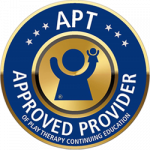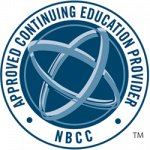Training Description
This play therapy training is offered Live In-Person for contact hours and Virtual Webinar via Zoom for non-contact hours.
Play therapists face numerous complex ethical dilemmas involving both children, their caregivers, and their families. These dilemmas raise emotional responses, intuitiveness, and sensations in the body as conflict arises in the play therapist surrounding how to respond. Expressive modalities will be used for processing dilemmas of the past and preparation for those in the future.
Participants will apply rules and code of ethics for their license, APT Play Therapy Best Practices, APT Paper on touch, and APT Technology Guidelines to 15+ play therapy vignettes involving ethical dilemmas. Special emphasis will be given to the following areas within APT Play Therapy Best Practices: the therapeutic relationship; parents and family; confidentiality; professional responsibility; relationship with other professionals; evaluation and assessment; supervision and consultation; technology and telehealth.
For those gray areas when there isn’t clarity, participants will have the opportunity to select from five personal moral decision-making models to apply to their own play therapy practices. Current research and recommendations for play therapy practice will be included.




